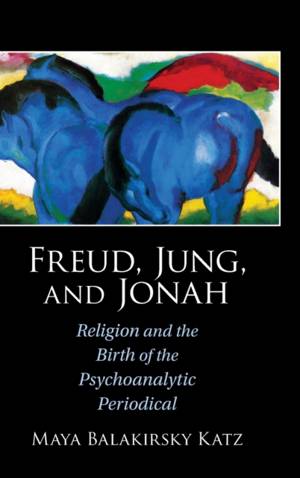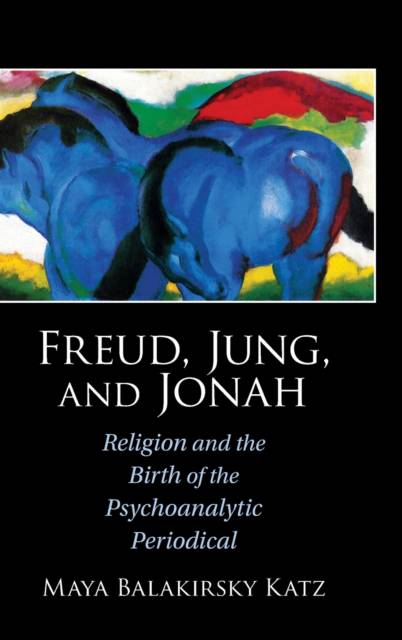
- Afhalen na 1 uur in een winkel met voorraad
- Gratis thuislevering in België vanaf € 30
- Ruim aanbod met 7 miljoen producten
- Afhalen na 1 uur in een winkel met voorraad
- Gratis thuislevering in België vanaf € 30
- Ruim aanbod met 7 miljoen producten
Zoeken
Freud, Jung, and Jonah
Religion and the Birth of the Psychoanalytic Periodical
Maya Balakirsky Katz
Hardcover | Engels
€ 168,95
+ 337 punten
Omschrijving
Religion, more than sexuality, cast psychoanalysis in controversy and onto the world stage even as it threatened to dismantle the psychoanalytic collective. In the founding years of the first psychoanalytic periodicals, relational dynamics shaped the psychoanalytic corpus on religion. The psychoanalytic pioneers developed their ideas in tandem even if in protest to one another. Religion is a topic worthy of engagement, not least because the symbolized terrain in the history of religion was so often deployed as a vehicle for motivating, disciplining, or editing out a member of the psychoanalytic community in publication. This book offers an interdisciplinary approach to religion and psychology, including a compelling denouement that reveals new narratives about longstanding rumours in the early history of the psychoanalytic movement. Above all, this volume demonstrates that the first generation of psychoanalysts succeeded in writing themselves into the history of religious thought and sacralizing the origins of psychoanalysis.
Specificaties
Betrokkenen
- Auteur(s):
- Uitgeverij:
Inhoud
- Aantal bladzijden:
- 200
- Taal:
- Engels
Eigenschappen
- Productcode (EAN):
- 9781009100007
- Verschijningsdatum:
- 22/12/2022
- Uitvoering:
- Hardcover
- Formaat:
- Genaaid
- Afmetingen:
- 152 mm x 229 mm
- Gewicht:
- 693 g

Alleen bij Standaard Boekhandel
+ 337 punten op je klantenkaart van Standaard Boekhandel
Beoordelingen
We publiceren alleen reviews die voldoen aan de voorwaarden voor reviews. Bekijk onze voorwaarden voor reviews.











